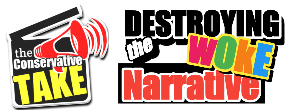[ad_1]

National Public Radio (NPR) has modified its coverage on workers taking part in political occasions. Now the workers is free to be part of protests, for the proper trigger, in fact. Political donations and campaigning for a particular trigger or politician is supposedly nonetheless off the desk, however reporters are actually allowed to “express support for democratic, civic values …”
NPR Public Editor Kelly McBride defined marching in a Black Lives Matter protest or an LGBTQ satisfaction parade would in all probability be okay, however, in apply, journalists nonetheless have to clear it with their bosses. So, BLM and LGBTQ are good – however what about March for Life or the freedom for Cuba demonstrations?
Let Your (Purple) Hair Down, NPR
McBride revealed an article on July 29 explaining the rule change. For greater than 20 years, there was a blanket ban towards any of the workers taking part in “marches, rallies and public events.” The piece additionally removes “vague language” directing journalists to keep away from personally advocating for “controversial” or “polarizing” points.
The new coverage reads:
“NPR editorial staff may express support for democratic, civic values that are core to NPR’s work, such as, but not limited to: the freedom and dignity of human beings, the rights of a free and independent press, the right to thrive in society without facing discrimination on the basis of race, ethnicity, gender, sexual identity, disability, or religion.”

“Is it OK to march in a demonstration and say, ‘Black lives matter’? What about a Pride parade? In theory, the answer today is, ‘yes,’” McBride explains. But there’s an issue: Those two arguably left-wing causes are the solely ones explicitly granted in the whole article – and it’s over 2,000 phrases lengthy.
How about “if a journalist wants to picket an abortion clinic or demonstrate in support of women’s autonomy over their bodies? What about a journalist who wants to express her general support of the Second Amendment? Or a parent who wants to march in solidarity with families and victims of a mass shooting?” These are talked about underneath the part close to the finish explaining how the guidelines “don’t answer some of the thorniest questions.”
In apply, journalists can have to get permission from their bosses, and there might be a whole lot of questions to reply. Or will there? What editor goes to grill the black staffer who needs to be part of a BLM rally or a Pride parade? Want to help the Second Amendment or protest Planned Parenthood? Oh, prepare for an interrogation. After all, “when taking a public stance makes it harder for other NPR journalists to do their jobs, there is an expectation that the journalism will take precedence.” But this isn’t about exhibiting NPR’s political bias; that’s outdated information. And actually, who anticipated in any other case? What group owing its existence to the state may ever be truthfully anticipated not to lean towards statism and no matter political occasion greatest represents it? Wonder why public faculties have a foul repute for political indoctrination? Follow the cash; few are prepared to chew the hand that writes the test.
Double Standards and Low Expectations
Is it affordable to count on an organization to simply present its services or products with out pushing politics on prospects and workers? Absolutely. There’s an actual hazard in companies and celebrities making an attempt to turn out to be political influencers – and it has been identified to backfire spectacularly. At the finish of the day, sports activities followers need to watch the recreation, hungry people need to eat their meals in peace, and people who hope to stay effectively knowledgeable simply need the information of the day with out some speaking head telling them which politicians are saints and that are “Literally Hitler.”

But what about the particular person? Must an individual turn out to be fully apolitical or cease caring about causes so as to have a decent-paying job and luxuriate in a cushty high quality of life? If a journalist from NPR is seen at a Pride parade or walks into Walmart sporting a Black Lives Matter tee shirt, does it routinely imply the firm is paying them to be there, or that the whole firm is biased? Should Home Depot fireplace people for donating to political campaigns? How about McDonald’s? Lord forbid a conservative should construct his new deck out of lumber sorted by a Biden voter or a liberal eat a burger put collectively by some pro-life protester.
It has oft been stated that folks, normally, are silly. Perhaps it’s true – however what grownup doesn’t understand a person particular person has particular person preferences, desires, wishes, and beliefs? No, the drawback right here isn’t that the “only just barely publicly funded” National Public Radio (NPR) – which receives, as defined in a really detailed American Thinker exposé, a major quantity of tax {dollars} – will now permit its workers to be part of BLM protests. American tax {dollars} aren’t “funding” the protest except NPR is sending folks there on the clock; they’re paying the wage of the journalists, who will then spend their earned revenue as they see match. The drawback is that NPR has “loosened its restrictions” so the ideologically appropriate members of the workers can help the firm authorized causes.
~
Read extra from James Fite.
[ad_2]
Source hyperlink















